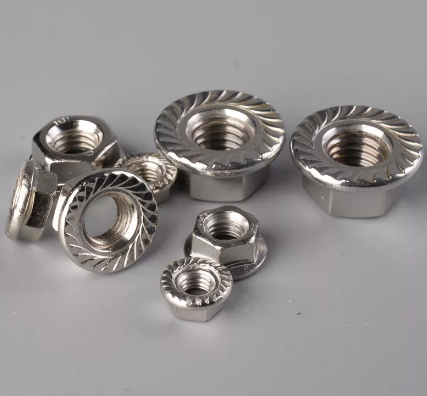
Aluminum profile connectors and fasteners are essential for building strong, flexible, and modular structures. They are key to assembling conveyors, workstations, and machine enclosures. Choosing the right components ensures strength, durability, and ease of assembly.
In this guide, we’ll explore the various types of connectors and fasteners. You’ll learn how to select the best options for your projects and applications.
What are Aluminum Profile Connectors and Fasteners?
Aluminum profile connectors and fasteners are crucial components for joining and stabilizing aluminum profiles. These accessories allow for the construction of versatile, modular frameworks that can be easily assembled. They are widely used in various industries like automation, machinery, and construction.
What makes aluminum profile connectors and fasteners unique?
Ease of Assembly: No need for welding or complicated machinery. These connectors fit into T-slot aluminum profiles, allowing quick and easy assembly.
Precise Fit: Designed to perfectly align with the T-slot grooves, aluminum profile connectors ensure a stable and secure connection every time.
Variety of Options: From corner brackets to internal connectors, these fasteners come in various types. Whether you need strength, flexibility, or aesthetic appeal, there's a solution for you.
These simple yet essential components make building strong, customized structures easy, whether for temporary setups or permanent installations.
Types of Aluminum Profile Connectors
Aluminum profile connectors come in several types, each serving unique purposes. These connectors provide various benefits, making it easy to assemble flexible and strong structures. Let’s look at the most common types used in different applications.
T-Nuts and Bolts
Function: These fasteners are used to secure profiles together, especially for T-slot aluminum profiles.
Advantages: T-nuts are quick to insert and easy to adjust, offering versatility for a wide range of constructions.
Applications: T-nuts and bolts are perfect for building construction frames, machinery, and workstations.
Corner Brackets
Function: Corner brackets join aluminum profiles at 90-degree angles, ensuring strong connections at corners.
Advantages: They provide stability and durability at key structural points.
Materials: Typically made from die-cast or extruded aluminum for strength and reliability.
Applications: Ideal for creating frames, enclosures, and support structures where right angles are needed.
Internal Connectors
Function: Hidden inside the profiles, internal connectors provide a seamless, clean look.
Advantages: These connectors maintain a sleek aesthetic, perfect for designs where appearance is crucial.
Applications: Often used in high-end projects like custom furniture or precision machines, where design matters as much as functionality.
Specialized Connectors
Function: Specialized connectors include cube connectors, multi-axis joints, and articulated joints for more complex connections.
Advantages: These connectors can handle intricate angles and multi-dimensional configurations.
Applications: Used in advanced machinery, robotic arms, and custom frame constructions requiring specialized angles.
Mitre-Butt-Fastening Sets
External Connection Plates
Function: External connection plates come in various shapes like L, T, Y, and Cross for strong connections in specific configurations.
Advantages: These plates offer high versatility, ensuring strength for various connection angles.
Applications: Common in complex frame structures or configurations that need additional support for structural integrity.
These aluminum profile connectors allow for quick assembly and offer flexibility for various structural needs. Choosing the right connector ensures your project will be stable and efficient.
Types of Fasteners for Aluminum Profiles
Aluminum profiles require specific fasteners to secure connectors and maintain stability. These fasteners are essential for ensuring strong, reliable connections in modular structures. Here are the most common types of fasteners used with aluminum profiles.
T-Nuts and T-Bolts
Usage: T-nuts and T-bolts are inserted into the T-slot of aluminum profiles to attach various components.
Advantages: These fasteners are highly adjustable and versatile, making them ideal for a range of applications. They allow quick modifications and adjustments to your design.
Applications: Commonly used in constructing frames, assembly lines, and workstations. They are essential aluminum profile accessories for building flexible and stable structures.
Screws and Nuts
Usage: Standard screws and nuts are used to securely fasten aluminum profiles to connectors, holding the structure together.
Advantages: These are cost-effective and widely available, making them a go-to option for many projects. They offer reliable performance with simple installation.
Applications: Typically used for basic construction where additional flexibility or adjustment is not required.
Preset Nuts
Usage: Preset nuts are pre-inserted into the profile’s T-slots, allowing for quick and efficient assembly.
Advantages: These fasteners save time, reduce the need for tools, and ensure consistent assembly every time.
Applications: Often used in modular designs where speed and efficiency are crucial, such as in assembly workstations or industrial enclosures.
These aluminum profile fasteners are essential for ensuring a secure and stable structure. Depending on your needs, choosing the right fastener will streamline your assembly process and enhance the overall durability of your project.
Choosing the Right Aluminum Profile Connectors and Fasteners
Selecting the right components is essential to ensuring a strong, durable, and cost-effective structure. The correct choice of aluminum profile connectors and fasteners affects the strength, cost, and ease of assembly of your project. Here's what you need to consider before making your decision.
Factors to Consider
Application Requirements: What load and stress will the structure bear? For heavy-duty projects, you may need stronger connectors and fasteners to handle the increased weight.
Design Needs: Consider the look and flexibility you need. Whether you prefer a sleek, clean design or need the ability to make frequent adjustments, this will influence your choice of connectors and fasteners.
Load Requirements
When building structures, connectors and fasteners must be able to bear the required load. For high-load applications, like industrial workstations, internal connectors or specialized fasteners are best. These offer greater stability and support for heavy equipment or machinery.
Aesthetics and Flexibility
Internal connectors provide a seamless and clean finish, ideal for projects where appearance matters. They’re perfect for high-end or customer-facing designs.
T-nuts and bolts, on the other hand, offer flexibility for future modifications. If you expect to adjust or reconfigure your design, these fasteners are a good choice.
Ease of Assembly and Cost
If you're working on a budget, T-nuts and corner brackets are affordable and easy to assemble. They don’t require advanced tools or skills, making them suitable for quick, less complex setups. However, they may lack the aesthetic appeal of more specialized connectors.
Profile Compatibility
It’s crucial to ensure the connectors and fasteners are compatible with the profile's size and groove configuration. The wrong fit can cause instability, poor performance, and even damage. Always check the specifications of both the aluminum profile accessories and connectors to ensure they match perfectly.
Applications of Aluminum Profile Connectors and Fasteners
The versatility of aluminum Profile connectors and fasteners allows them to be used across various industries and applications. These components make it easy to build strong, adaptable structures in a wide range of fields.
Automation Systems
Usage: Aluminum profiles and connectors are used to build frames, supports, and enclosures for automated machinery.
Benefits: They provide a stable, customizable solution for integrating automated systems, ensuring efficiency and reliability in manufacturing lines and machinery.
Applications: Common in robotics, assembly lines, and packaging systems where automation is key to operations.
Workstations and Machine Enclosures
Usage: These components offer customizable solutions to create ergonomic workstations and protective enclosures.
Benefits: Aluminum profiles can be easily adjusted to fit specific workspace requirements, offering both flexibility and durability.
Applications: Ideal for creating tailored workstations for electronics, assembly, or testing environments, providing both protection and convenience.
Conveyor Systems
Usage: Aluminum profiles and connectors are integral to assembly line conveyors, especially in manufacturing and logistics.
Benefits: They allow for efficient movement of materials, offering stability and the ability to create complex, multi-directional conveyor systems.
Applications: Widely used in industries like automotive, food processing, and distribution, where continuous material flow is necessary.
Custom Structures and Frames
Usage: Aluminum profile connectors are ideal for building custom frames for specialized projects.
Benefits: They offer flexibility for design, allowing projects to be easily reconfigured or modified as needed.
Applications: Used in industries like robotics, manufacturing, and construction, where tailored structures are essential for project success.
From aluminum profile connectors to aluminum profile accessories, these fasteners enable engineers and designers to create innovative and reliable solutions across many sectors.
Advantages of Using Aluminum Profile Connectors and Fasteners
Understanding the advantages of aluminum profile connectors and fasteners helps you make better decisions for your projects. These components offer many benefits that can improve efficiency, save time, and reduce costs.
Modularity and Flexibility
Reconfigurable and Adjustable: These components can be easily changed or adjusted as your needs evolve. If your project requires modifications, aluminum profile connectors allow for quick reassembly without major overhauls.
Ideal for Growing Projects: Whether you’re building a temporary setup or something more permanent, these connectors offer flexibility for both scenarios.
Strength and Durability
Lightweight Yet Strong: Aluminum is naturally strong and durable, providing long-lasting solutions for a variety of projects. It’s resistant to wear, corrosion, and weathering.
Heavy-Duty Applications: Despite being lightweight, aluminum handles heavy loads effectively, making it ideal for industrial or automation use.
Cost-Effectiveness
Lower Labor Costs: These connectors and fasteners eliminate the need for welding or specialized labor, significantly reducing installation costs.
Affordable Materials: Aluminum is cost-effective compared to other metals, and these aluminum profile accessories are priced to suit a wide range of budgets.
Ease of Assembly
Simple Assembly Process: There’s no need for welding or complex machining. You can assemble aluminum profile connectors using just basic tools, making the process faster and easier.
Quick Setup: These fasteners allow for efficient assembly, saving time during installation and reducing the need for skilled workers.
Conclusion
Aluminum profile connectors and fasteners are key to building durable and flexible modular structures. By understanding the different types and selecting the right components, you can create strong, reliable, and cost-effective systems. Whether for automation, conveyors, or custom frames, these connectors and fasteners make assembly efficient and seamless, ensuring the success of your projects.
FAQs
1. What are aluminum profile connectors and fasteners used for?
Aluminum profile connectors and fasteners are used to join, support, and stabilize aluminum profiles in modular structures, enabling quick and secure assembly in various applications such as automation, machinery, and custom frame building.
2. What are the advantages of using aluminum profile connectors?
These connectors offer several benefits, including flexibility, strength, ease of assembly, and cost-effectiveness. They allow for easy reconfiguration, are lightweight yet durable, and don’t require welding or specialized labor.
3. What types of aluminum profile connectors are available?
Common types include T-nuts and bolts, corner brackets, internal connectors, specialized connectors, mitre-butt-fastening sets, and external connection plates. Each type serves different purposes, providing solutions for various structural needs.
4. How do I choose the right aluminum profile connectors and fasteners?
When choosing connectors and fasteners, consider factors like load requirements, design needs, ease of assembly, and profile compatibility. For high-load applications, specialized fasteners and internal connectors are recommended, while T-nuts and bolts offer flexibility for modifications.
5. Can aluminum profile connectors be used for custom projects?
Yes, aluminum profile connectors and fasteners are ideal for building custom frames and structures. They provide a flexible, cost-effective solution for industries like robotics, construction, and manufacturing, where tailored designs are necessary.









